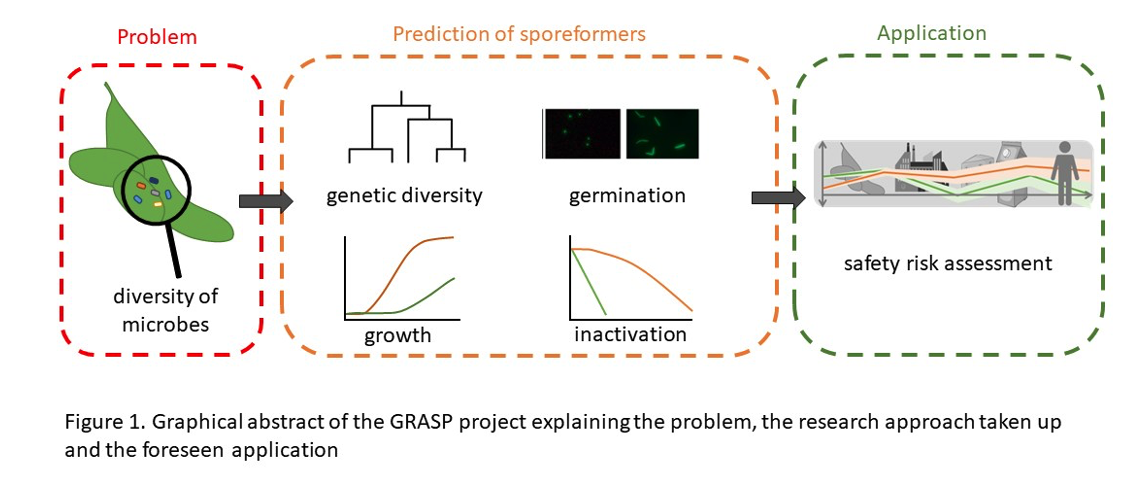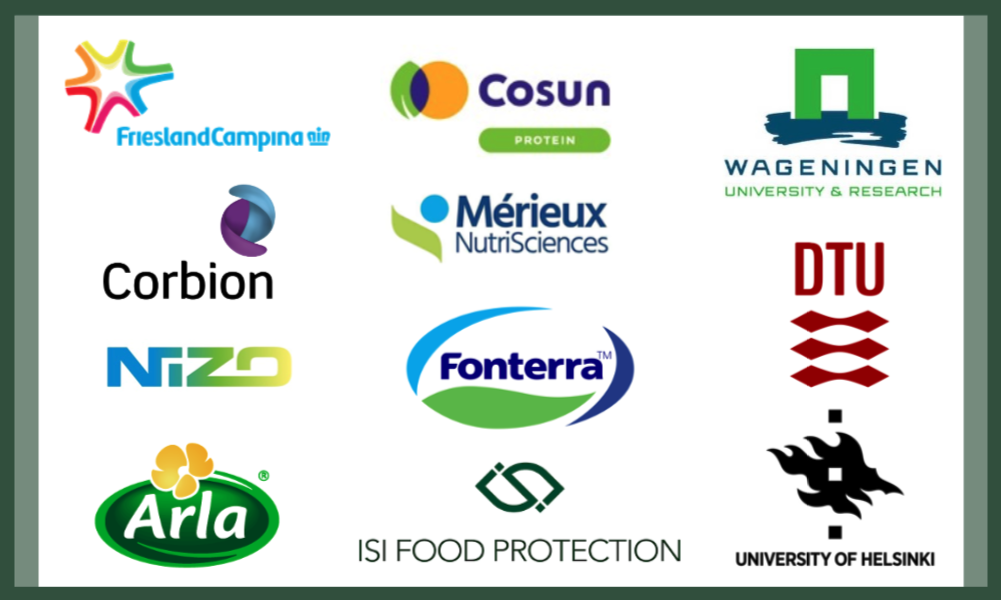GRASP
"Genomic-driven Risk ASsessment of Plant-based foods"
The GRASP project aims to develop a genomic-driven risk assessment for sporeforming pathogens in plant-based foods.
⌐ The project has been granted 7.691.259 DKK in funding.
⌐ The project starts on 1 September 2024 and will end on 31 December 2027.
Introducing the GRASP project
Genomic-driven Risk Assessment of Plant-based foods
The GRASP project aims to develop a genomic-driven risk assessment for sporeforming pathogens in plant-based foods.
Background for the project
Plant-based ingredients are a source of pathogenic microorganisms, and their control is of utmost importance in new plant-based value chains. Realistic prediction of pathogen levels in food can, however, be challenging due to the diversity within pathogenic species. This concern relates especially to the sporeforming pathogens Clostridium botulinum and Bacillus cereus, that are carried by raw plant-based ingredients and survive commonly applied heating processes like pasteurization. Unless inhibited by the composition of the food, surviving spores can germinate in the food and pose a foodborne risk. Both species harbor genetically different subgroups with very distinct growth behavior and heat resistance. Critical knowledge gaps exist on the occurrence and behavior of these subgroups in plant-based foods, while this is key to develop strategies to control these pathogenic contaminants.
The activities and outcomes
Therefore, the GRASP project will
1) investigate the occurrence of pathogenic sporeformers in plant-based ingredients in concert with the industrial partners,
2) characterize the germination, growth, and heat resistance of genetically different subgroups, and
3) compare the variability sources and integrate this information in a computer-based predictive model for safety risk assessment of plant-based foods.


